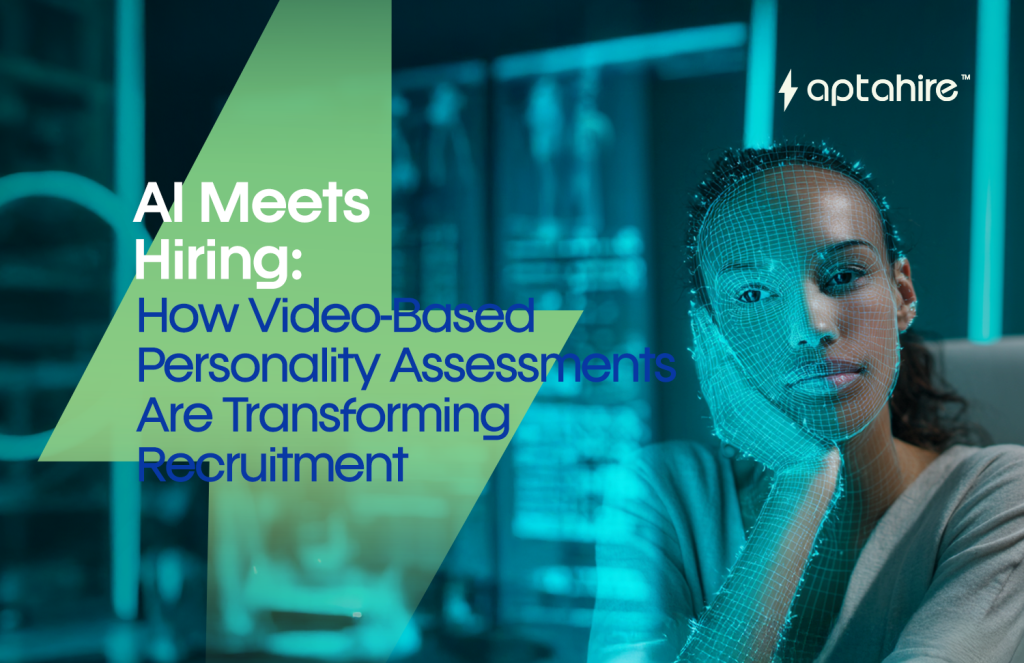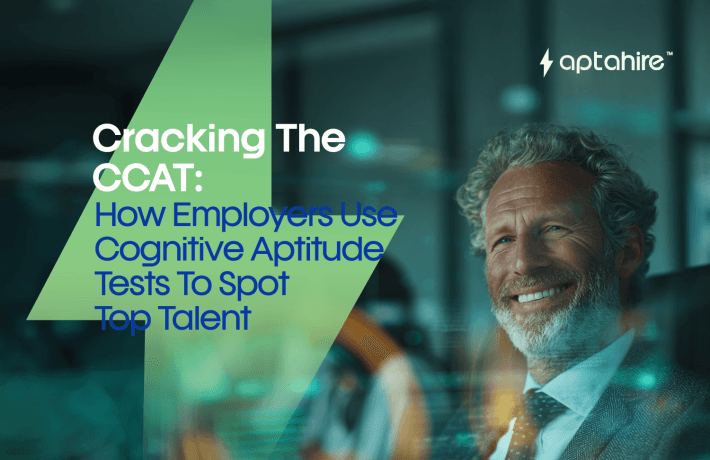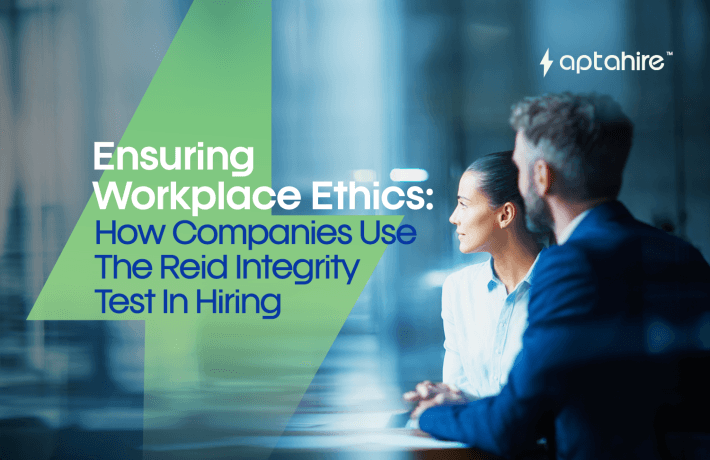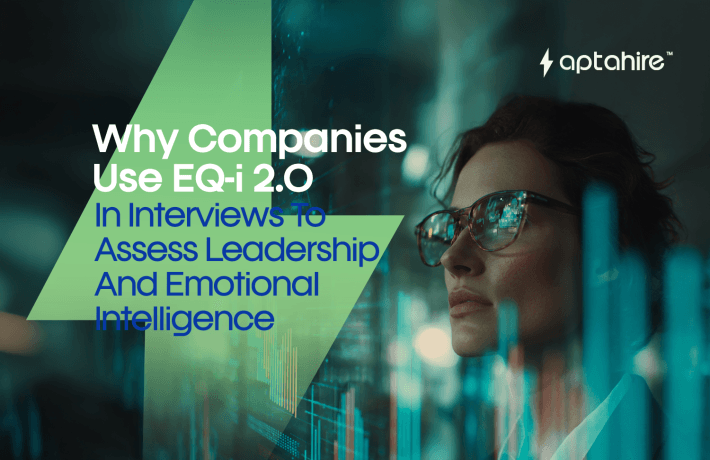AI Meets Hiring: How Video-Based Personality Assessments Are Transforming Recruitment

Recruitment has always been a balancing act. On one side, you have resumes filled with polished bullet points and carefully chosen words. On the other, you have gut instincts from recruiters and hiring managers trying to read between the lines in a 30-minute interview. But here’s the problem: resumes don’t always reflect reality, and gut feelings can often be clouded by unconscious bias.
Enter the new player in the game: AI-powered video-based personality assessments. These aren’t your traditional “tick-a-box” personality quizzes. Instead, they combine psychology, behavioral science, and artificial intelligence to observe candidates in real time, capturing the subtle things we humans often miss.
It’s like putting on a pair of high-definition glasses during hiring. Suddenly, you don’t just see what candidates want you to see, you see who they really are.
From Questionnaires to Conversations: The Evolution of Personality Testing
For decades, organizations leaned on tests like Myers-Briggs, Big Five, or DISC to understand personality. While these tools were groundbreaking in their time, they relied heavily on self-reporting. Candidates could tweak answers to sound more agreeable, more confident, or more “leader-like.”
Fast forward to today, and hiring is happening in a faster, more competitive, and more globalized environment. Companies don’t just need people who can do the job, they need people who can collaborate across cultures, adapt to rapid changes, and fit into unique workplace dynamics.
That’s where video-based assessments shine. They replace static multiple-choice questions with dynamic, real-time interactions, capturing micro-expressions, speech rhythms, tone shifts, and even subconscious gestures.
Think about it: while a candidate might say they’re confident on a questionnaire, video analysis might reveal nervous avoidance of eye contact, inconsistent tone, or hesitation, all valuable signals recruiters can use to make a more informed decision.
How Do Video-Based Personality Assessments Actually Work?
Here’s what happens behind the curtain:
- Candidate Records a Video Interview
Instead of showing up in person, candidates receive structured prompts through a digital platform and record their answers.
- AI Gets to Work
The system doesn’t just transcribe what was said, it analyzes:
- Facial expressions & micro-gestures (smiles, frowns, eye contact).
- Tone, pitch, and pace of voice (confidence, hesitation, calmness).
- Body language (openness, assertiveness, adaptability).
- Word choice and sentence structure (clarity, optimism, problem-solving style).
- Building a Personality Profile
Using behavioral science frameworks, the AI maps traits like empathy, resilience, adaptability, integrity, and leadership style.
- Recruiter Insights Delivered
Instead of hours of interviews, recruiters get a holistic personality report, complete with recommendations on how the candidate aligns with the company culture and job role.
It’s efficient, precise, and far more authentic than traditional methods.
Why Companies Are Jumping Onboard
1. Fairer and More Objective Hiring
Human interviewers, even with the best intentions, are prone to bias. First impressions, accents, and even small talk can sway decisions. AI-driven assessments ensure each candidate is measured against the same criteria, leveling the playing field.
2. Efficiency at Scale
Picture this: 500 applicants for one role. With manual interviews, it would take weeks. With video-based AI assessments, recruiters can filter and prioritize candidates in a fraction of the time.
3. Spotting Cultural Fit Early
Résumés highlight skills. Interviews highlight experience. But neither reliably shows whether someone will thrive in your workplace culture. AI digs deeper, highlighting traits that align (or clash) with your company’s values.
4. Better Candidate Experience
No more rescheduling or waiting weeks for interviews. Candidates can record their responses when they feel most comfortable, at home, at their own pace. This flexibility reduces stress and helps showcase their authentic personality.
5. Future-Ready Hiring
Remote work and global talent pools are the new normal. With AI-powered video analysis, recruiters can confidently evaluate candidates anywhere in the world, without sacrificing depth or accuracy.
But Wait, Is AI Really Fair?
This is the elephant in the room. Can an algorithm truly evaluate humans without bias?
The short answer: yes, if it’s built responsibly.
AI removes the most common human biases, appearance, accent, or first impression. Instead, it focuses on measurable behaviors. Many platforms also allow customization, meaning recruiters can prioritize traits relevant to their unique company culture, rather than relying on outdated stereotypes.
That said, the human element remains essential. Recruiters must ensure AI tools are transparent, ethically designed, and regularly audited to avoid “data bias.” Think of AI as a smart assistant, it highlights patterns, but the final decision still rests with people.
Human + AI: The Perfect Hiring Duo
AI is not here to replace recruiters, it’s here to make them smarter.
Imagine this scenario:
- AI identifies a candidate as highly empathetic and adaptable, but notes they show nervousness under pressure.
- The recruiter now enters the final interview already knowing what areas to probe deeper.
This collaboration ensures hiring is data-driven, yet empathetic, where the science of AI and the intuition of humans work hand-in-hand.
Looking Ahead: The Future of Video-Based Assessments
We’re just scratching the surface. As AI evolves, imagine future assessments that can:
- Predict how a candidate reacts to conflict resolution scenarios.
- Simulate team collaboration exercises virtually.
- Assess long-term growth potential based on adaptability scores.
This isn’t about turning hiring into a science fiction movie, it’s about making it more human than ever before. Because when AI handles the data, recruiters have more time to focus on empathy, connection, and building relationships with candidates.
Final Thoughts
Hiring has always been about trust, trust that the person you choose can not only do the job but also grow with your organization. Video-based personality assessments powered by AI are redefining that trust. They don’t just analyze résumés; they reveal the person behind the application.
For employers, this means stronger teams and reduced hiring risks. For candidates, it means being seen and evaluated for who they really are, not just the words on their CV.
The future of recruitment isn’t about replacing humans with machines, it’s about using AI to strip away noise, bias, and guesswork, so we can see people more clearly than ever before.
FAQs
1. What is a video-based personality assessment in hiring?
A video-based personality assessment is a recruitment tool where candidates record responses to interview questions, and AI analyzes their verbal and non-verbal cues (tone, expressions, gestures, word choice) to evaluate personality traits, soft skills, and cultural fit.
2. How is this different from traditional personality tests?
Unlike traditional questionnaires, video-based assessments capture real-time behavior, making it harder for candidates to give rehearsed or “ideal” answers. It provides a more authentic and dynamic evaluation of personality.
3. What traits can AI detect in a video-based assessment?
AI can identify traits like confidence, adaptability, empathy, resilience, communication style, problem-solving approach, and leadership potential by analyzing both spoken content and body language.
4. Are video-based personality assessments biased?
When designed ethically, these tools actually reduce bias compared to human interviews. They use consistent, measurable criteria for all candidates, ensuring fairer evaluations. However, it’s important for employers to choose platforms that prioritize transparency and diversity.
5. Do candidates need special equipment for these assessments?
Not at all. Most assessments can be completed with a smartphone, tablet, or laptop with a working camera and microphone. A stable internet connection is usually the only requirement.
6. Can candidates prepare for a video-based personality assessment?
Yes, but unlike traditional tests, preparation isn’t about memorizing answers. It’s about practicing clear communication, maintaining natural eye contact, and responding authentically to prompts.
7. How do recruiters benefit from using video-based assessments?
Recruiters save time by quickly shortlisting candidates, reduce hiring errors by using data-backed insights, and gain a deeper understanding of cultural fit before investing in multiple interview rounds.
8. Will AI replace human recruiters in the hiring process?
No. AI assists by providing objective insights and reducing workload, but final hiring decisions still require human judgment, empathy, and contextual understanding.
9. Is candidate data safe in these assessments?
Most reputable platforms follow strict data security and privacy standards. Candidates should always check the company’s data policy before participating.
10. What industries are using video-based personality assessments?
They are widely used across tech, healthcare, finance, retail, and customer service, essentially any industry where soft skills, cultural alignment, and adaptability are as important as technical expertise.



